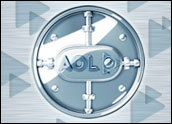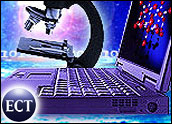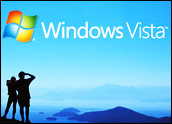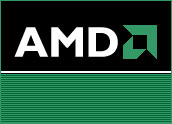
Samsung Electronics on Wednesday announced it is producing a 4 gigabyte flash memory device designed to enhance Windows Vista performance.
The new solid state disk is compatible with Windows ReadyBoost, a new Windows Vista feature that uses flash memory to improve system responsiveness. It is meant to help users avoid all the multi-second delays they typically experience when moving within and between applications.
Samsung is targeting “high-end desktop computer users, [including] gamers and graphic designers,” Don Barnetson, director of flash marketing for Samsung Semiconductor, told TechNewsWorld.
For end-users, it could mean that five- and 10-second wait periods commonly experienced today will be eliminated, the company hopes, and that productivity will receive a boost as well.
Info in a Flash
Windows ReadyBoost allows consumers to use a removable flash memory device, such as a USB drive, to improve system performance without having to open the computer. It can retrieve data kept on the flash memory more quickly than it can retrieve data kept on the hard disk, decreasing the wait time before the PC responds, according to Microsoft.
“The Vista ReadyBoost algorithm automatically determines what parts of the information the user is interested in. Vista learns how they use the computer and puts the important information on the drive,” Barnetson explained.
When a user requests that data, the solid state disk can service up to 5,000 requests per second, according to Samsung, in sharp contrast with a traditional hard disk drive that is limited to servicing 100 to 200 requests per second.
“The idea is you can have a USB device that can double as different things. It’s essentially acting like additional system memory,” Joe Wilcox, senior analyst at JupiterResearch, told TechNewsWorld. “[But] you don’t always get that much more from having more memory. It depends on several factors.”
Questionable Results
While 4 gigabytes is a considerable amount of capacity, especially when compared to 32 megabyte USB memory disks, the question remains what the real performance boost will be, Wilcox said.
“Compare it to the human body. If you have good constitution and physical strength, but you have weak lungs, you’ll still be out of breath and not have enough oxygen to power those muscles,” he said. “There are a lot of components to a computer; memory is just one part of it.”
Windows Vista is still in beta, estimated for release in early 2007, so it is difficult to assess what the extended benefits may or may not be. Initial tests of the product show it has the potential to double efficiency, improving program loading time by up to 30 to 50 percent, Barnetson said.
While he admits that most of the targeted customers likely are not even using the beta version at this point, Barnetson is confident that his company will provide them with what they want.
“Working with Microsoft determined that hard disk drive wait times [would be] highlighted as one of their key issues,” he said. “It helps resolve that bottleneck.”





















































